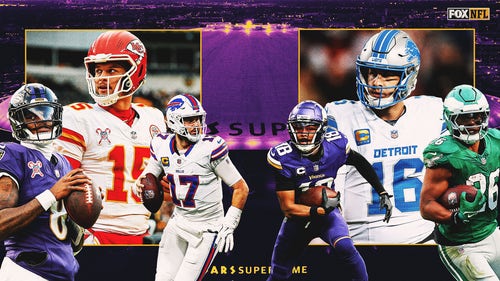After 100-day wait, English soccer returns and takes a knee
MANCHESTER, England (AP) — Players kneeled in support of the Black Lives Matter movement and victims of the coronavirus were remembered as the Premier League made a somber return on Wednesday from a 100-day shutdown that deprived England of its national sport.
Back on the sideline at Manchester City was Arsenal manager Mikel Arteta, whose positive COVID-19 test in March led to the longest suspension of the top-flight competition since World War II. Fans are still prohibited from attending stadiums.
Britain is still trying to contain one of the world's worst outbreaks of the coronavirus while also convulsed by a reckoning over racial injustice that roused the campaigning passion and anger of Premier League players following the death of George Floyd.
“I’m embarrassed, I am ashamed for what white people have done to black people,” Manchester City manager Pep Guardiola said. “We have to do a lot of things for black people we have not done so far.”
The message “Black Lives Matter” replaced player names on jerseys during City's 3-0 victory over Arsenal and Aston Villa's 0-0 draw with Sheffield United. The symbolic move that will continue in this weekend's round of games is being accompanied by demands from players for substantive changes to end discrimination and promote diversity.
After the opening whistle blew in the first game at Villa Park, every player took a knee in a tribute to Floyd, who was killed by a policeman in Minneapolis last month. In Manchester, the same gesture took place just before kickoff.
“We’d seen the other teams do it in the earlier kickoff and we thought we have to do it as well," said Manchester City forward Raheem Sterling, who is at the forefront of the campaign against racism in soccer and wider society.
"Little by little, we are seeing change and that’s what everyone is hoping for, not just black players but the majority of the country.”
The power of footballers to use their platform to bring about political change was shown this week when Manchester United forward Marcus Rashford forced the government to reverse its decision to halt school lunch vouchers for poor students over the summer holidays.
The government was keen to see Rashford, Sterling and the rest of the Premier League stars back in action as the lockdown is eased. But games cannot be watched in pubs nor in stadiums because of ongoing concerns about gatherings spreading the coronavirus.
“There’s no doubt that this is a hugely symbolic moment,” Culture Secretary Oliver Dowden said about the restart at the government’s daily briefing an hour before the games, “an important step forward in our careful journey back towards normality.”
The resumption of the Premier League comes as Prime Minister Boris Johnson's Conservative government faces criticism for not ordering a nationwide lockdown until March 23 and for easing restrictions in England too soon given still-high levels of new cases and deaths.
The virus had been rapidly spreading from Italy and Spain to the rest of Europe in March but it took a decision by the Premier League — after Arteta's positive test — to halt the competition. The move, which came after the government had said sports competitions could go on, has been credited with saving lives by keeping hundreds of thousands of fans from being infected in, or around, stadiums.
As well as a Black Lives Matter logo, Premier League jerseys for the rest of the season will feature a badge thanking Britain’s National Health Service. It is a show of appreciation for the medics as the coronavirus threat persists, with the toll rising above 42,000 on Wednesday.
During the lockdown and with the resumption of the season in doubt, the league had feared it could lose more than $1 billion for failing to meet broadcasting commitments.
Of the five biggest soccer leagues in Europe, England is the fourth to get back on the field. Germany was first last month, while Spain and Italy resumed this month. France canceled the remainder of its season while the virus was still peaking — as did England's neighbor, Scotland.
The Premier League plans to finish the remaining 92 games of its season by July 26 and the FA Cup final is now due to be staged a week later on Aug. 1.
The Champions League plans to complete the competition in an abbreviated final eight tournament in Lisbon, with the final on Aug. 23.
___
Follow AP pandemic coverage at , and








